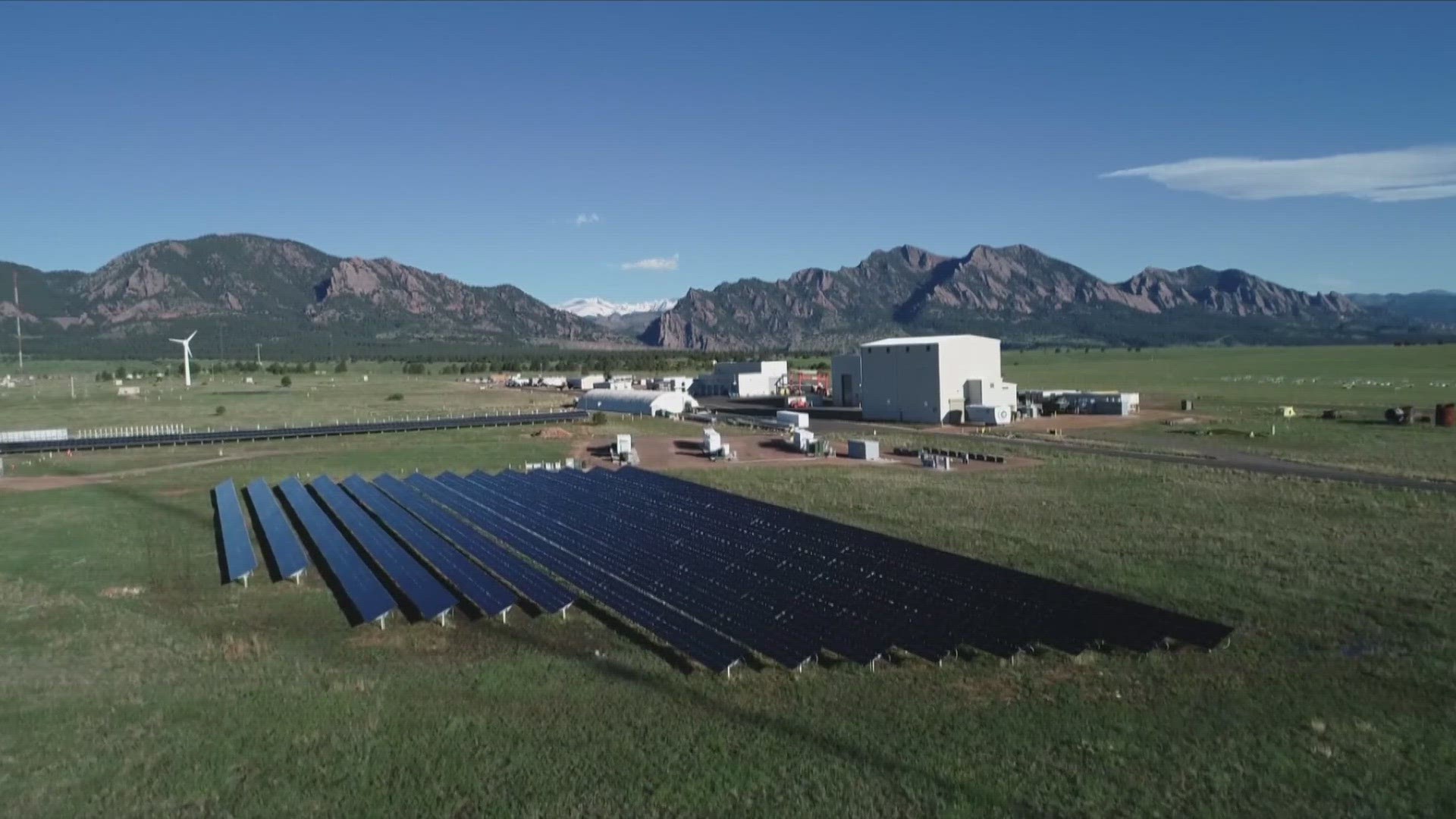BOULDER, Colo. — An energy grid run off renewable energy may sound far off in the future. But a new study from CU Boulder finds we could hit the goal in our lifetime.
"That's a really exciting time, not just for the planet but for American businesses, American consumers and for bipartisanship on this issue," said Matt Burgess, a coauthor of the paper, assistant professor of Environmental Studies, and Director of the Center for Social and Environmental Futures at CU Boulder.
The U.S. is on track to have fully renewable energy in less than four decades, according to the study.
"We are on track to decarbonize the electric sector by 2060," said Grace Kroeger, lead author on the paper. Kroeger led the assessment for her honors thesis while at CU Boulder.
Often, Kroeger said, the utility companies are ahead of policy on this.
“They kind of had an impetus, it seemed like, to put sustainability as a big goal within their annual reports and have a goal, whether or not the state actually had a mandate for something like that," Kroeger said.
"There's all this evidence that's come out in the last few years that the energy transition is happening faster than a lot of people predicted. And a lot of what's driving that is the private sector," Burgess said.
While shifting away from fossil fuels like coal and moving toward renewables is often a political minefield all around the country, Burgess and Kroeger said often, utilities are moving forward on green initiatives themselves. Xcel Energy, for example, says it plans to provide customers with 100% carbon-free electricity by 2050 and reduce carbon emissions by 80% by 2030.
"The bigger ones actually, whether or not they were actually saying it, had a big commitment to some of these renewable practices," Kroeger said.
Burgess said transitioning toward fully renewable energy sources can impact reliability.
"Reliability is harder with renewables – intermittency of wind and solar being an example. There are some areas where it's easier, like with solar microgrids," Burgess said. "If everybody has a solar panel on their house, powering their house, and the power lines fall down, you might be fine."
Will fully renewable energy cost the consumer more? That depends on reliability, Kroeger and Burgess said. Finding greener ways to store energy, like wind and solar, even when it's not windy or sunny, could help. Right now, Kroeger said, many of the storage options rely on fossil fuels for power.
Research and development into these renewable energy options could help to lower costs, too, Burgess said.
"The technology has been improving and becoming cheaper faster than people predict," Burgess said.
This transition toward a greener energy grid will be a slow one, Kroeger said. Still, as long as utilities stay on track, a renewable energy future is on the horizon.
"The more that we see a win-win between the energy transition and the economy, the more it's going to have unstoppable momentum and also make our lives better both now and in the future," Burgess said.
SUGGESTED VIDEOS: Latest from 9NEWS

